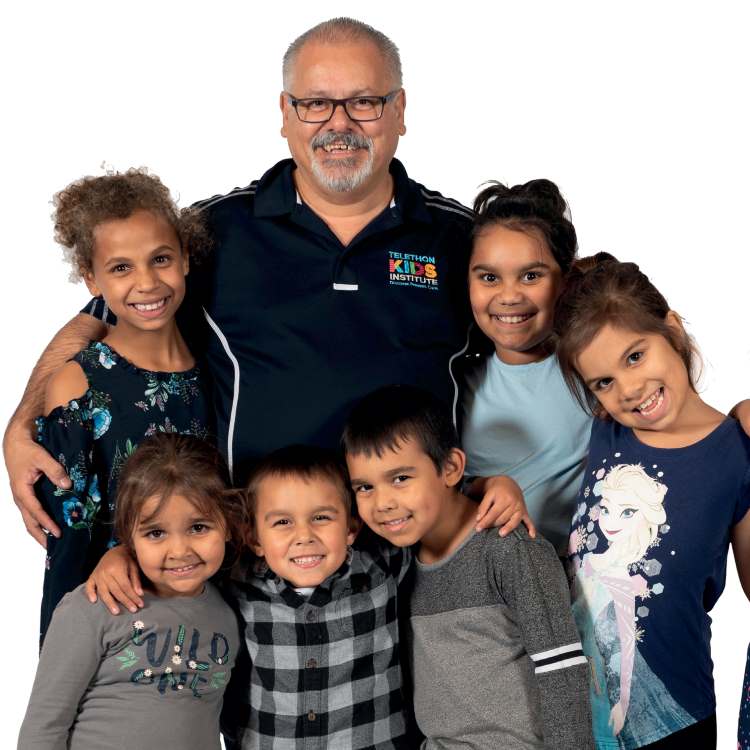Search
Research
Bush Tucker and Vitamin DThis five-year project in Western Australia (WA) aims to promote vitamin D sufficiency among Aboriginal people by developing food-based dietary strategies to increase vitamin D intakes and by encouraging safe sun exposure.
Research
Identifying social pathways to enhanced life outcomes in Aboriginal and Torres Strait Islander childrenCarrington Shepherd PhD Honorary Research Associate Honorary Research Associate Areas of research expertise: Population health; Aboriginal and Torres
Research
Start Stronger, Live Longer National Aboriginal Health Worker Symposium: Final ReportThe Rio Tinto Aboriginal Health Partnership marries Rio Tinto's commitment and dedication to community investment with research expertise of the Telethon Inst
Research
Awareness and impact of the ‘Bubblewrap’ advertising campaign among Aboriginal smokers in Western AustraliaAntismoking mass media campaigns have been shown to reduce smoking prevalence in the mainstream community.
Research
Rio Tinto Child Health Partnership Final ReportIn 2002, the Founding Director of The Kids for Child Health Research, Professor Fiona Stanley, approached Rio Tinto Ltd about the possibility...

News & Events
Elders lift their voices to bridge the gap for kidsLed by nine Elders, the Ngulluk Koolunga Ngulluk Koort Project is working to generate a better understanding of early childhood development from an Aboriginal/Nyoongar perspective.
Research
Childcare Use and Its Role in Indigenous Child Development: Evidence from the Longitudinal Study of Indigenous Children in AustraliaRelatively disadvantaged children might benefit more from attending childcare, as indicated by the positive estimated effects found for those who never attended childcare
Research
Socioethnic disparities in severe maternal morbidity in Western Australia: a statewide retrospective cohort studyTo assess the scale of ethnic inequalities in severe maternal morbidity (SMM) rates and quantify the contribution of maternal characteristics to these disparities. This is a retrospective cohort study. A whole-of-population linked administrative data from 2002 to 2015 in Western Australia.
Research
Patterns of recurrent preterm birth in Western Australia: A 36-year state-wide population-based studyIt is known that a previous preterm birth increases the risk of a subsequent preterm birth, but a limited number of studies have examined this beyond two consecutive pregnancies. This study aimed to assess the risk and patterns of (recurrent) preterm birth up to the fourth pregnancy.
Research
Trends and burden of diabetes in pregnancy among Aboriginal and non-Aboriginal mothers in Western Australia, 1998-2015Diabetes in pregnancy (DIP), which includes pre-gestational and gestational diabetes, is more prevalent among Aboriginal women. DIP and its adverse neonatal outcomes are associated with diabetes and cardiovascular disease in the offspring.
